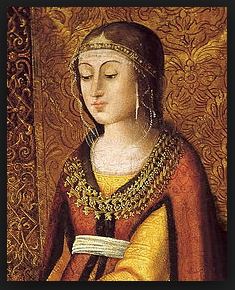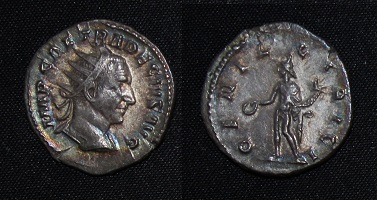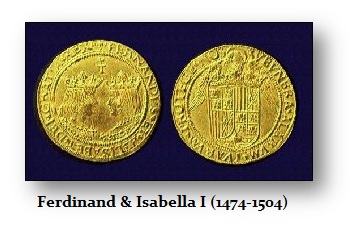Persecution – An Economic Symptom?
QUESTION: Mr. Armstrong; Is it true that in Spain under Isabella demanded all Muslims convert or leave Spain? Are we facing such a cycle again when we look at the hostility that is growing over religion?
KG
ANSWER: That is an interesting question. As far as a major religious uprising, we are probably looking at that sort of thing in 2042. The Roman Emperor Trajan Decius (249-251 AD) enacted measures intended to restore stability and unity, including a requirement that Roman citizens affirm their loyalty through religious ceremonies. He issued an edict enforcing religious conformity in 250 AD. Christians who refused to participate were subject to the death penalty. His edict lasted only for one year during which he executed Pope Fabian. His motive seems to have been his reasoning that barbarians were encroaching upon the empire and this was allowed because the gods were angry at the Christians.
In 250 AD, the Goths crossed the Danube and began to terrorize Thrace. Trajan Decius and his eldest son Etruscus marched to confront the Gothic Invasion. Decius was the first Roman Emperor to die in battle by an external enemy. His edict was the first compelled conversion which was also adopted in Spain about 1240 years later. This was actually 4 waves of 309.6 years on the Economic Confidence Model.
In Spain, the Muslims were under Muslim rule until 1492. There was no bias and many intermarried in Granada and even converted in both directions. After 1492, the Muslims in the rest of Castile who had lived under Christian rule for generations were given an ultimatum. Isabella decided to impose a conversion-or-expulsion decree against the Muslims. Castile outlawed Islam in a legislation dated July 1501 in Granada, but it was not immediately made public until February 12th, 1502, first in Seville. The edict affected “all kingdoms and lordships of Castile and Leon.”
This edict required that all Muslim males aged 14 or older, and females aged 12 or older, must convert to Christianity or leave Castile by the end of April 1502. This was the classic majority oppressing a minority. There was no question of violence or even claims that the Muslims were not peaceful. The edict pretended that the justification was that those Muslims who converted were prejudiced by non-converted Muslims.
The edict was not something that allowed a freedom of movement. It specifically forbid nearly all possible destinations and thus was really an effort to force Muslims to convert rather than emigrate. Portugal had already banned Muslims since 1497, so that was not an option. The order explicitly forbade going to other neighboring regions, such as the Kingdoms of Aragon and Valencia, the Principality of Catalonia, and the Kingdom of Navarre. They also outlawed travel to North Africa and territories of the Ottoman Empire. The edict also outlawed Christians from hiding a Muslim. Islam was outlawed and those harboring Muslims would be punished severely. A further edict issued on September 17, 1502, forbade the newly converted Muslims to leave Castile within the next two years as well to prevent a pretended conversion to allow free movement.
 Meanwhile, Navarre’s queen Catherine de Foix (1468 – 1517) and her co-ruling husband John III had no interest in pursuing expulsion or forced conversions. When the Spanish Inquisition arrived in Navarre in the late fifteenth century and began harassing local Muslims, the Navarran royal court warned it to cease. This eventually led in 1512 to the invasion of Navarre by Castile and Aragon. The Spanish forces led by King Ferdinand quickly occupied the Iberian half of the kingdom, including the capital Pamplona. In 1515, Navarre was formally annexed by the Crown of Castile as one of its kingdoms. With this conquest, the edict of conversion came into effect in Navarre, and the Inquisition was tasked with enforcing it.
Meanwhile, Navarre’s queen Catherine de Foix (1468 – 1517) and her co-ruling husband John III had no interest in pursuing expulsion or forced conversions. When the Spanish Inquisition arrived in Navarre in the late fifteenth century and began harassing local Muslims, the Navarran royal court warned it to cease. This eventually led in 1512 to the invasion of Navarre by Castile and Aragon. The Spanish forces led by King Ferdinand quickly occupied the Iberian half of the kingdom, including the capital Pamplona. In 1515, Navarre was formally annexed by the Crown of Castile as one of its kingdoms. With this conquest, the edict of conversion came into effect in Navarre, and the Inquisition was tasked with enforcing it.
The really interesting aspect is that this was at the instigation of Isabella and not her husband Ferdinand II. Ferdinand did not extend the conversions to his Aragonese subject in his kingdom of Aragon. As King of Aragon, part of the oath of coronation was to swear that he would never forcibly convert his Muslim subjects. Throughout his life, despite the actions of his wife, Ferdinand was unwilling to break it. Ferdinand died in 1516, and was succeeded by his grandson Charles V, who also swore the same oath at his coronation.
Eventually, there was during the 1520s an anti-Muslim sentiment in Spain. Charles V then attempted to release himself from the oath he swore to protect the Muslims. He wrote to Pope Clement VII in 1523 and again in 1524 asking for this dispensation. Pope Clement initially resisted the request, but issued in May 1524 a papal brief releasing Charles from the oath and absolving him from all perjuries that might arise from breaking it. Thus, on November 25th, 1525, Charles V issued an edict ordering the expulsion or conversion of remaining Muslims in the Crown of Aragon. Similar to the case in Castile, even though the option of exile was available on paper, in practice it was almost impossible.
The Muslims naturally revolted against this order. The royal troops defeated this rebellion and in the process killed more than 5,000 Muslims. After the defeat of the rebellions, the entire Crown of Aragon was now nominally converted to Christianity and all mosques were demolished. People were forced to even change their names based upon Christianity.
Persecution is far more common throughout history than people suspect. Christians, Jews, and Muslims have all been targets. It seems to arrive during periods of economic decline. As I has said many times — when everyone is fat and happy, everyone just gets along. The rise of communism and the persecution of those with any wealth has always been economic justification. In the case of Germany, it was instigated by the harsh reparation payments imposed on Germany that created class warfare. Following the American Civil War, blacks were discriminated against in the South because they were regarded as the cause of the war and thus the loss by the South. There is always some division that is fostered. This is the darkside of humanity.



